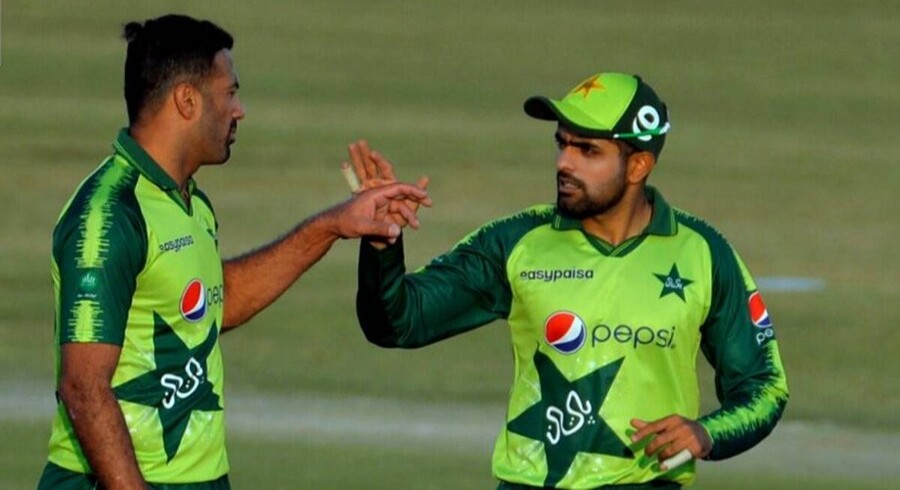The Lahore-born cricketer still has a long way to go in cementing his credentials as a good leader
 PHOTO COURTESY: PCB
PHOTO COURTESY: PCB
Last week, Pakistan defeated South Africa in the third and final T20I to take the series 2-1. It was Pakistan’s first series win over a side ranked in top five since Babar Azam took over the reins. On the other hand, it was the first time South Africa lost a bilateral T20I series in Asia. As much a big feat it was for Babar it has also highlighted many flaws in his captaincy.
It is still early days for Babar as captain and he is still learning the art. In September 2019, he was appointed as Pakistan’s vice-captain. The Pakistan Cricket Board’s (PCB) initial idea was to groom him properly under Sarfaraz Ahmed but after an abrupt end to Sarfaraz’s captaincy career, he was asked to lead the team in the white-ball format.
Since then he has captained Pakistan in 17 matches in the shortest format; winning 11 and losing 4 while two ended with no result. A positive thing in all of this is that his batting form hasn’t suffered in the past year or so and he is the same force with the bat but cracks in his captaincy have been quite evident.
In the third game, Pakistan had South Africa reeling at 48 for 6 after 8 overs. Although, David Miller played a blistering knock and there aren’t many in world cricket who can stop him when he is in this kind of mood, but still better management of bowlers could have restricted them to a low score. For instance, on a pitch where spinners wreaked havoc on the batsmen, Babar Azam didn’t bowl out his spinners. At the end of the innings, Muhammad Nawaz had two overs left while Usman Qadir had one left. Nawaz had only gone for 13 in his two overs while Qadir gave away only 12 in his three overs.
You can give Babar the benefit of doubt of holding Nawaz back as it is always easier for left-handed batsmen to take on a left-arm spinner but on a track that assisted spinners, he should have backed him. Also, South Africa in their bowling stint gave their part-time spinner Jon Jon Smuts three overs.
In addition to this, Babar managed his pacers poorly. Both Shaheen Shah Afridi and Hasan Ali were bowled out before the last over. Faheem Ashraf was given the job and he went for 25 in the final over. On another day, it could have been the difference and would have proved costly for Pakistan.
During the second match, Pakistan was defending a low total and the dew factor also played its part but it was not a kind of pitch where South Africa should have gotten to the target in the 16th over. South Africa had a good start but Pakistan was able to dismiss Reeza Hendricks and Van Bijlon in quick succession by the 13th over. At that point, the Proteas still needed 40 odd runs to win with two new batsmen at the crease.
Instead of bringing Shaheen, who was troubling South African batsmen with pace and swing, he brought in Iftikhar Ahmed which allowed Miller and Heinrich Klassen to get set and guide South Africa to win. When you’re defending a low score, there is only one way you can win and that is by taking wickets and that didn’t happen.
In the Pakistan Super League (PSL), Babar Azam plays for Karachi Kings and quite strangely he is not the captain. Captaining a side in the PSL is a perfect opportunity for any leader to gain experience and enhance his captaincy credentials. For a month you are playing in front of big crowds under pressure. It is still baffling why the PCB hasn’t addressed this issue so far.
There is no doubt about Babar Azam’s ability with the bat but he still has a long way to go in cementing his credentials as a good leader. It is important that he sits back and learn from his mistakes because a slight error in a big game can cost you a tournament.
The views expressed by the writer and the reader comments do not necessarily reflect the views and policies of Cricket Pakistan.